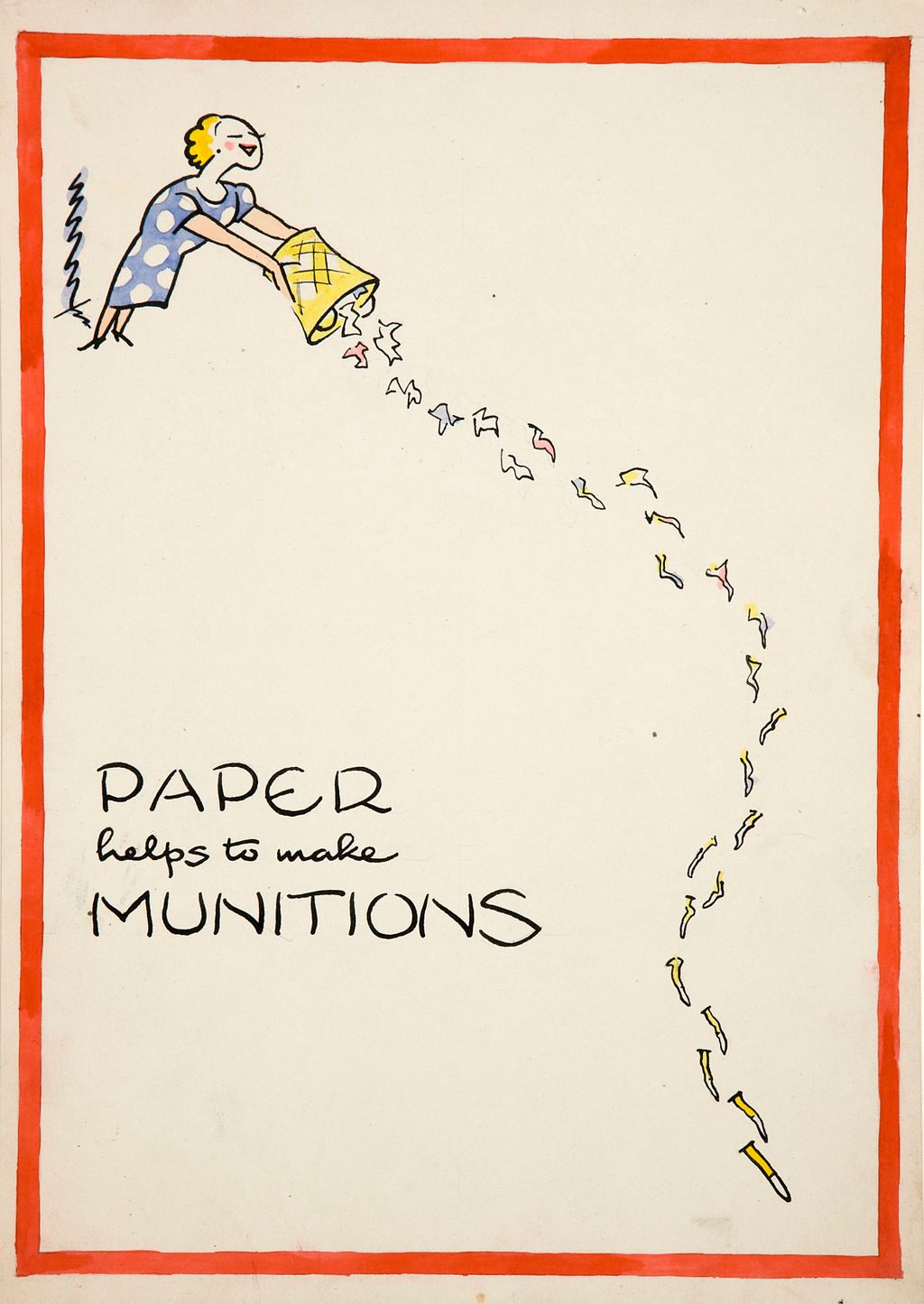This Unusual 1948 PSA Depicts a World Without Paper
Get used to eating rice directly out of your pocket.
Paper recycling has existed since at least the 11th century, when numerous Japanese shops began exclusively selling re-used paper products. But recycling as an institution did not come fully into vogue until World War II—in an economic and resource crunch, governments implored their citizens to conserve materials for the war effort.

In 1939, as a part of its larger National Salvage Campaign, Britain launched the Paper Salvage movement, which, through a series of posters and video PSAs, urged citizens to sort their trash. Following the war, as the British economy stumbled, the government issued further crackdowns on the overuse of resources like coal and paper.

The video above represents one of Britain’s more offbeat attempts to cut down on paper consumption. It depicts a dystopia in which there is not enough paper for food cartons, and shopkeepers have to innovate other ways to carry food.
In the PSA, a shop assistant pours rice into a customer’s pocket, wraps sausages around her neck, and stuffs an egg into her mouth.
Then the shop assistant—played by comedian Terry-Thomas—turns to the camera. “This kind of thing will really happen if you don’t save paper,” he declares.













Follow us on Twitter to get the latest on the world's hidden wonders.
Like us on Facebook to get the latest on the world's hidden wonders.
Follow us on Twitter Like us on Facebook